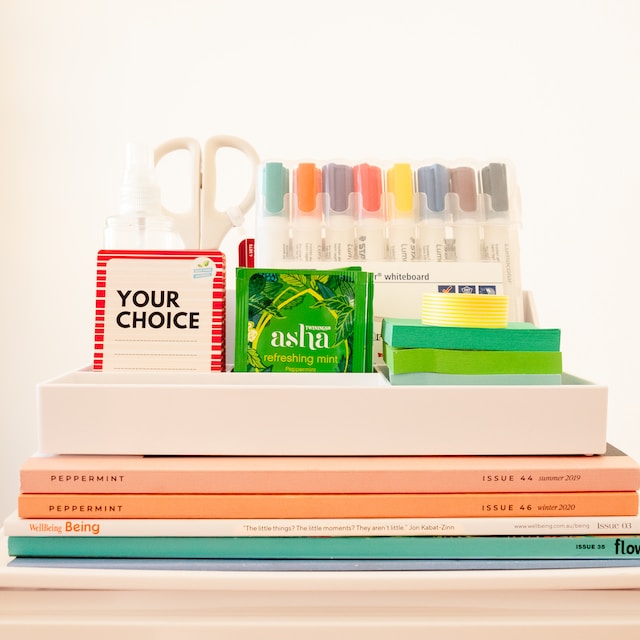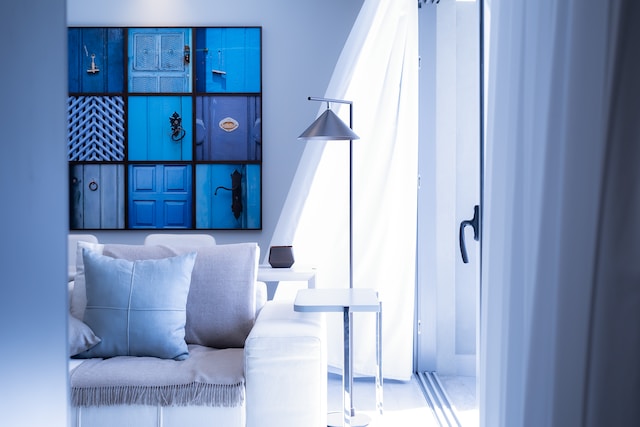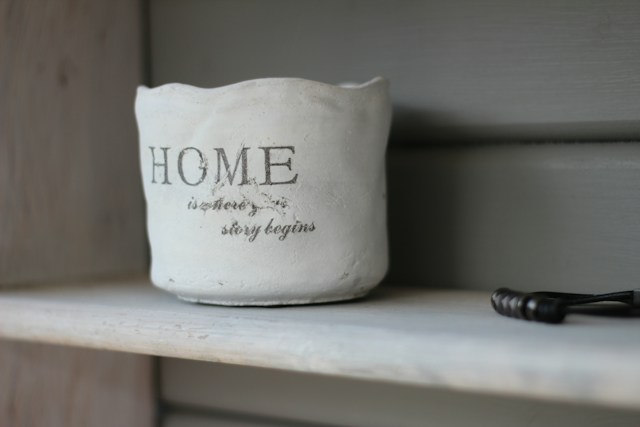Embracing Organizational Harmony
Embarking on the journey of home organization for those of us who are neurodivergent goes beyond mere tidiness. It's a quest to create a living space that truly resonates with our unique way of experiencing the world. It's about shaping an environment that not only meets our functional needs but also supports our mental and emotional wellbeing. This personalized approach steers away from trying to fit into preconceived notions of what a home should look like. Instead, it focuses on crafting spaces that enhance our comfort and productivity.
In this pursuit, we're not just organizing objects. We're curating our surroundings to better suit the way we process information, manage our emotions, and engage with our daily tasks. It's a deliberate process of aligning our environment with our personal preferences and requirements. Whether it's selecting the right color schemes for visual harmony or setting up strategic zones for different activities. Every choice is made with the intention of creating a harmonious balance that caters to our neurodiverse needs.
Ultimately, this journey is about affirming our individuality and allowing our homes to become true reflections of ourselves. By throwing out the one-size-fits-all mold, we embrace a form of organization that champions our distinct traits and turns our living spaces into a stronghold of tranquility and personal empowerment. It's here, in these tailored sanctuaries, that we find the freedom to be our authentic selves, fostering wellbeing on our own terms.
"It is not our differences that divide us. It is our inability to recognize, accept, and celebrate those differences."
- Audre Lorde
The Mind Behind the Method
Alyssa infuses her unique perspective into the realm of home organization. She blends her lived experience as a neurodivergent individual with a rich background in education and psychology. Her approach transcends the typical decluttering process, advocating for a system that uplifts and accommodates the diverse spectrum of neurodivergent needs. Her methodology is one that celebrates differences, ensuring that each organized space is a testament to the individual's preferences and necessities.

Whether she's methodically organizing her kitchen to suit her sensory preferences or nurturing her plants, Alyssa's passion for creating supportive and inclusive environments is evident. Her dedication extends beyond her personal space as she actively shares her innovative organizing techniques with a broader audience on social media, aiming to empower others in the neurodivergent community to craft their own spaces of comfort and functionality.
Understanding Neurodivergence: Its Impact and Implications at Home
Neurodivergence is a term that encompasses a variety of conditions where an individual's brain functions diverge from the mainstream neurotypical patterns. This includes, but is not limited to, autism spectrum disorder (ASD), attention deficit hyperactivity disorder (ADHD), dyslexia, and Tourette's syndrome, among others. Being neurodivergent affects how a person thinks, processes information, interacts socially, manages emotions, and responds to their environment.
In the context of daily living, neurodivergent individuals might experience the world more intensely. Sensory inputs such as bright lights, strong smells, or background noise, which may go unnoticed by neurotypical individuals, can be overpowering or even distressing. These sensory differences can influence focus, mood, and energy levels, making everyday tasks more challenging. In the home, where we seek solace and control, these challenges can significantly affect comfort and functionality.

Recognizing and understanding the concept of neurodivergence is the first step in creating homes that are more than just living spaces. They become environments where neurodivergent individuals can thrive, with their unique needs not just accommodated but celebrated. As we become more aware of the impact our home environment has on our daily lives, especially for those of us who are neurodivergent, we can begin to implement organizational systems and designs that truly make a house a home.
Crafting Neurodiverse-Friendly Spaces: A Comprehensive Approach
Traditional home organization often fails to meet the unique needs of neurodivergent individuals, whose interaction with their environment can significantly affect their comfort and functionality. Creating a cohesive home environment requires a shift in perspective. One that sees organization not just as a means to tidiness but as a pathway to crafting sanctuaries that foster focus, calm, and personal growth.
Tailoring Spaces to Sensory and Cognitive Preferences
The sensory world of a neurodivergent person can be intense and demanding. Textures, colors, and sounds might either comfort or overwhelm, making sensory-friendly organization a priority. We advocate for customized organizational systems that align with each person’s sensory profile and cognitive style. Visual aids like color-coding can introduce clarity and order, while tactile and auditory cues might better serve others, helping them navigate their space confidently and comfortably. The key is to create an environment that not only is organized but also resonates with the individual’s sensory experiences.

Designing for Flexibility and Function
In addition to customizing sensory elements, it's beneficial to structure living spaces into clear zones. Designating areas for specific activities allows individuals to switch contexts smoothly, reducing sensory overload and cognitive fatigue. For example, a serene corner dedicated to relaxation can provide a respite from the sensory stimulation of a creative workspace. Embracing such zoning not only helps in reducing overwhelm but also in establishing a physical environment that reflects and supports the varied facets of a neurodivergent individual's life.
Embracing Empathy in Organizational Practices
The organizational journey should uplift rather than burden. It's essential to cultivate strategies that are empathetic and responsive to the emotional experiences of neurodivergent individuals. Breaking tasks into manageable steps and acknowledging the emotional labor involved in organization are fundamental to this process. Flexibility is also crucial, allowing for adjustments and refinements as our understanding of our needs evolves. Moreover, fostering simple, sustainable organizational habits ensures that the home remains a well-ordered sanctuary, minimizing upkeep and maximizing peace of mind.
The Home's Emotional Resonance
Recognizing the deep emotional connection neurodivergent individuals have with their personal spaces is vital. The process of organization is not merely logistical but deeply personal. A well-organized home for someone with neurodivergent traits is a curated environment that provides safety and solace. It's not just a backdrop for daily activities but a space where they can truly flourish.

In weaving together these essential considerations - the impact of the environment, personalized organizational systems, functional zoning, empathetic approaches, sustainable practices, and the emotional connection - we pave the way for living spaces that genuinely embrace neurodiversity. This comprehensive approach to home organization goes beyond mere aesthetics. It helps us forge environments that uphold and enhance the wellbeing of neurodivergent individuals, ensuring their homes are places where they can thrive authentically and wholeheartedly.
Strategizing Space for Neurodivergent Needs
The journey to creating a supportive space for neurodivergent individuals requires a thoughtful and strategic approach. It’s about reimagining the home not as a collection of rooms but as a cohesive environment where every element serves a purpose and contributes to the overall wellbeing. This process involves meticulous planning and a deep understanding of how each aspect of our living space can either support or disrupt the delicate balance of a neurodivergent individual's sensory and cognitive world.
Establishing Zones of Comfort
Creating zones within a home goes beyond mere aesthetics. It's about establishing areas that resonate with the unique needs and activities of neurodivergent individuals. A zone of comfort could be as simple as a cushioned window seat with a view of nature for someone who finds peace in visual stimuli. Or it could be a soundproofed room for those who require silence to recharge. These dedicated spaces act as a refuge from the sensory overload of the outside world, providing a controlled environment where relaxation and focus are not just possible but encouraged. Extending this concept, we can create dynamic spaces that adapt to the changing needs throughout the day. Transforming from a place of productivity to one of rest with minimal adjustments.

Decluttering with Purpose and Precision
When it comes to decluttering, our approach should be rooted in intentionality. Every item in a neurodivergent individual’s space must earn its place, either by serving a functional purpose or by contributing to the person's emotional and sensory comfort. This process of decluttering goes hand-in-hand with an understanding of the person's cognitive patterns and preferences. It's a careful balancing act between maintaining what is meaningful and necessary and removing what is superfluous or unsettling. By decluttering with purpose, we create an environment that minimizes distractions and maximizes clarity and peace of mind.
Implementing Sustainable Systems for Maintenance
To keep the home a well-ordered sanctuary, we must establish maintenance routines that are not burdensome but rather blend seamlessly into daily life. These systems are designed to be intuitive, ensuring that keeping order becomes a natural part of the day, rather than an added stressor. For neurodivergent individuals, a consistent and predictable environment can significantly enhance the sense of control and autonomy. Simple, yet effective organizational habits - like having a designated spot for daily use items or setting a regular time for a quick daily tidy-up - can make all the difference in maintaining a supportive, organized space.
In crafting spaces with these strategic considerations, we move beyond conventional organization; we create a living environment where every zone, item, and routine is in harmony with the neurodivergent individual’s way of life. This thoughtful orchestration of space ensures that the home is not just a place to exist but a personal haven tailored for living a full and comfortable life.
The TAKEAWAY
The concept of home organization for neurodivergent individuals transcends the mere act of tidying up. It represents a fundamental aspect of empowerment and autonomy. An organized home that caters to the specific needs of neurodiversity becomes a tool for self-efficacy, where the environment acts as a supportive partner in daily life. It is a testament to the idea that when our external circumstances are aligned with our internal experiences, we can navigate the world with more grace and less strife. This alignment paves the way for stress reduction, heightened focus, and an overall increase in wellbeing. It is the physical manifestation of our inner needs being heard and respected.

In considering why this matters, we delve into the profound connection between our surroundings and our mental landscape. For those of us who are neurodivergent, a space that is carefully attuned to our ways of processing and responding to the world is not a luxury - it's a vital component of living a balanced and fulfilling life. The care we put into organizing our space is reflective of the care we put into nurturing our mental and emotional health. It's a form of self-care that extends beyond the self to the very walls that surround us.
The importance of this conversation extends beyond the neurodivergent community - it's a universal reminder of the power of environment. The principles of intentionality, empathy, and personalization in creating our spaces can benefit us all. They encourage us to question, to reflect, and to act not just in the pursuit of a clutter-free home, but for a life that feels more manageable, more peaceful, and ultimately, more in tune with who we are.
The space we create for ourselves is where we cultivate the very essence of our lives.
https://thejornipodcast.com/episode-123-home-organization-for-neurodivergent-individuals-with-alyssa
